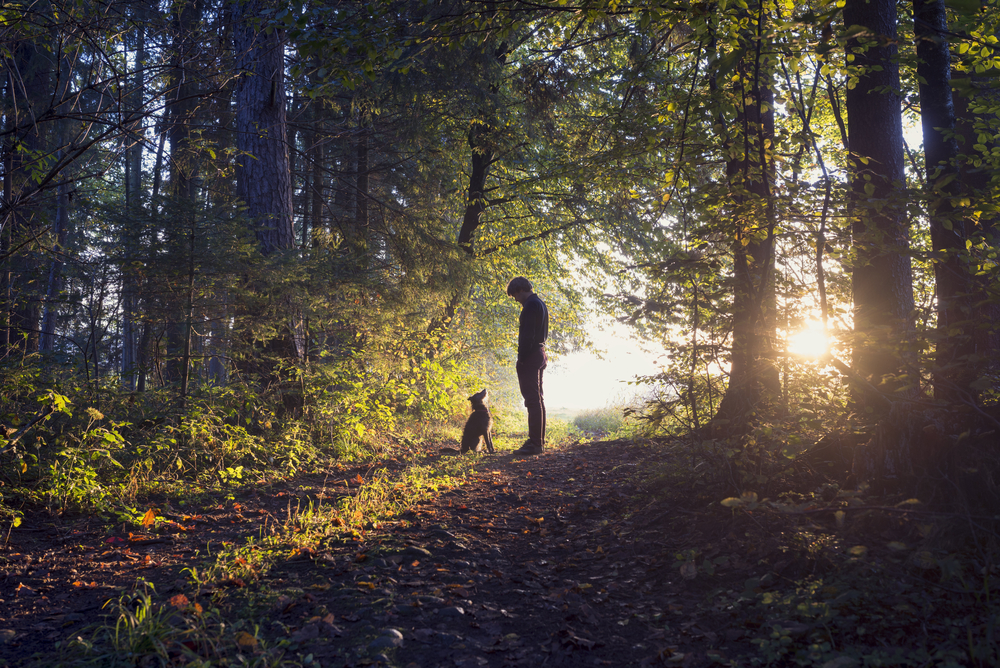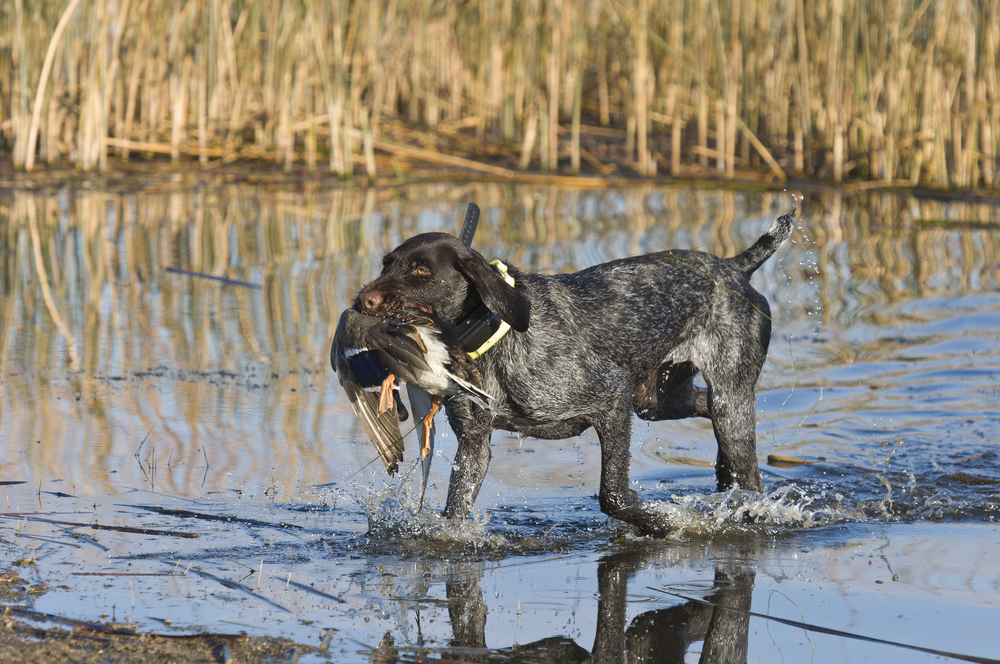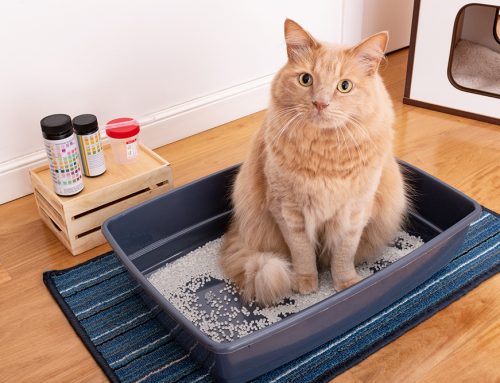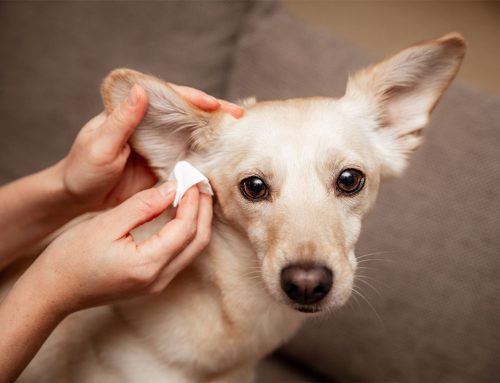September marks the beginning of various hunting seasons, from waterfowl to deer, which means that the woods, fields, and waterways can become dangerous spots for your four-legged friend to wander. Whether you are planning on sitting behind a decoy spread with your Labrador, or ambling along a field’s wood line with your Chihuahua, knowing how to protect your dog while outdoors can prevent a potentially deadly accident.
Enjoy all the delights nature has to offer as autumn approaches by following our Oliver Animal Hospital team’s hunting season safety tips. Learn seven ways to play safely outdoors with your pet this fall.
#1: Boost your dog’s visibility with blaze orange garments
Blaze orange or pink are the primary colors hunters wear to make themselves visible to other hunters in the area. While animals cannot detect these bright hues, people can easily identify them when peering through trees and thick brush.
In addition to your own clothes (e.g., jacket, hat, pants), outfit your dog in bright garments of their own. A hunter orange vest and collar can greatly decrease your canine companion’s risk of a hunter mistaking them for their quarry.
#2: Assess your dog’s response to gunshot blasts
Many dogs are fearful of loud sounds, and gunshots often top their noise-aversion trigger list. While a hunting dog is typically accustomed to startling sounds, a pet dog may flee in terror when they hear a gunshot, especially if it’s nearby.
Keep an eye out for your dog’s noise-aversion signs so you can help them cope if they become frightened. Noise-aversion signs can include:
- Heavy panting
- Excessive drooling
- Trembling
- Pacing
- Whining, whimpering, or barking
- Clingy behavior
- Attempting to escape
- Inappropriate elimination
#3: Update your dog’s identification
If your tracking dog is hot on the trail, or your pet becomes startled by a gunshot, they may rapidly disappear from your view. Ensure you and your furry pal can be reunited by providing your dog with your contact information. In addition to double-checking that your dog’s collar identification tags are up-to-date, have your pup microchipped for permanent identification. Our Oliver Animal Hospital team can quickly and easily microchip your pet during a routine preventive care visit.
#4: Keep your dog by your side
Ideally, your dog should always be within your view, whether they are on the hunt, retrieving, or simply enjoying the outdoors. By leashing your dog, you help ensure they remain close, which helps keep them safe by preventing them from running off. If your dog has not been trained to return to your side when you call them, no matter what is tempting them, keep your pooch on a leash at all times.
#5: Guard your dog from woodland hazards
As your dog darts through the undergrowth, they can run afoul of thick vegetation, foxtails, thorny bushes, jagged sticks, and barbed-wire fences. These woodland hazards can easily lacerate or pierce your dog’s skin, or become embedded in their paws. Prevent your dog from becoming injured by outfitting them with protective gear such as a mesh face mask, rugged vest, and durable booties.
#6: Keep your dog away from animal carcasses
Fresh blood’s or rotting meat’s scent can draw in even the most well-trained dog, and you must keep your four-legged friend away from animal carcasses. Whether you’re field dressing a deer or you’ve stumbled across an unidentifiable mass of fur and bones, prevent your dog from gnawing on wildlife carcasses. Your dog can contract myriad bacteria, viruses, or parasites if they ingest an animal carcass.
#7: Protect your dog from infectious diseases and parasites

While you can’t protect your dog from every woodland danger, you can help prevent them from contracting many infectious diseases by ensuring they receive vaccines and year-round parasite preventives. Lifestyle-appropriate vaccinations that are geared toward dogs who spend time outdoors will help protect them from contracting distemper, rabies, leptospirosis, and Lyme disease. Parasite preventives will deter mosquitoes, fleas, ticks, and intestinal worms from infecting your pet, shielding them from heartworm disease and various tick-borne illnesses. By ensuring your dog has their annual wellness appointment, you avoid letting your pup’s vaccination protection and parasite prevention medication lapse.
The best safety prevention tip for any pet is to keep their wellness care up-to-date. Before hitting the woods—or fields or ponds—with your dog this fall, schedule a preventive care visit with our Oliver Animal Hospital team.








Leave A Comment